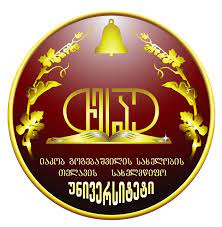კორონაპანდემია, როგორც ენის ლექსიკის გამდიდრების წყარო (გერმანული ენის მაგალითზე)
DOI:
https://doi.org/10.52340/tuw.2022.07საკვანძო სიტყვები:
კორონაპანდემია, კომპოზიტები, ორკომპონენტიანი, სამკომპონენტიანი, ნეოლოგიზმებიანოტაცია
კორონაპანდემიამ გავლენა იქონია არა მარტო ადამიანის ჯანმრთელობაზე, არამედ ეკონომიკაზე, პოლიტიკაზე, ყოველდღიურ ცხოვრებაზე და მათ შორის ენაზეც. ენა ცოცხალი ორგანიზმია, ის იბადება, იზრდება და ვითარდება განუწყვეტლივ, მათ შორის კრიზისის პერიოდშიც. ენაში აისახება ყველაფერი, რაც სამყაროში ხდება. კორონაპანდემიამ გავლენა მოახდინა ყველა ენაზე და მათ შორის გერმანულზეც. შეიქმნა ახალი სიტყვები, რომლებიც თავმოყრილია სპეციალურ ციფრულ ე.წ. კორონალექსიკონებში. ჩვენი კვლევის მიზანია დავადგინოთ რა გავლენა მოახდინა კორონაპანდემიამ გერმანულ ენის ლექსიკაზე. კვლევის ობიექტია: კორონაპანდემიის პერიოდში შექმნილი ციფრული კორონალექსიკონები. სიტყვა „Coronavirus”- კორონავირუსი გერმანულ ენაში ჯერ კიდევ 1984 წელს შემოვიდა (AIDS-შიდსის კვლევის კონტექსტში) და არა 2020 წელს. კორონაპანდემიამ შეცვალა გერმანული ენის სიტყვათმარაგი. 2020 წელს გერმანული ენის ლექსიკაზე არცერთ მოვლენას ისეთი გავლენა არ მოუხდენია, როგორც კორონაკრიზისს. Corona და Covid გახდა სჯარო კომუნიკაციის წამყვანი სიტყვები. წლის სიტყვად იქცა Coronapandemie-კორონაპანდემია. გერმანული ენა გამოირჩევა კომპოზიტების სიუხვით. კორონაპანდემიამ კიდევ უფრო გაზარდა კომპოზიტების რიცხვი. გამოიკვეთა რამდენიმე სტრუქტურა. განსაკუთრებით ხშირია ორკომპონენტიანი: (არსებითი სახელი+არსებითი სახელი) Coronageneretion-კორონას თაობა და სამ კომპონენტიანი კომპოზიტები: (არსებითი სახელი+არსებითი სახელი+არსებითი სახელი) Coronaviruspandemie- კორონავირუსპანდემია. შეზღუდვების შემოღებამ წარმოშვა აგრეთვე ნეოლოგიზმები: Zoomschule-ზუმის სკოლა. კორონაპანდემიამ დიდი გავლენა მოახდინა გერმანული ენის სიტყვათმარაგზე. მოკლე დროის მანძილზე გერმანული ენა გამდიდრდა პანდემიასთან დაკავშირებული ყოვლისმომცველი ლექსიკით. თუმცა აღსანიშნავია ისიც, რომ ამ სიტყვებს ყველას არ უწერია ენაში დამკვიდრება. მაგალითად, Heimarbeit- სახლში მუშაობას აქვს მეტი შანსი ენაში დარჩენის, ვიდრე ვირტუალურ წვეულებას (Coronaparty), რადგან სახლში მუშაობა ზოგიერთი კომპანიისთვის უფრო მომგებიანი აღმოჩნდა, რადგან ნაკლებ დანახარჯებს მოითხოვს და შესაძლებელია პანდემიის შემდგომ პერიოდშიც გაგრძელდეს, ვირტუალური წვეულება კი როგორც კი კორონაპანდემია დამთავრდება, მაშინვე წარსულს ჩაბარდება.






